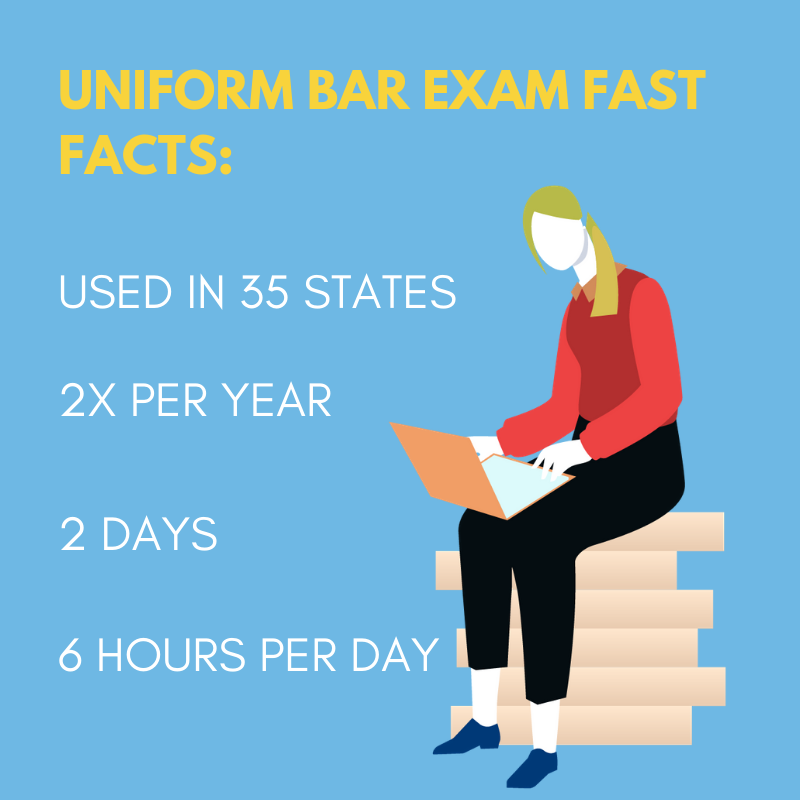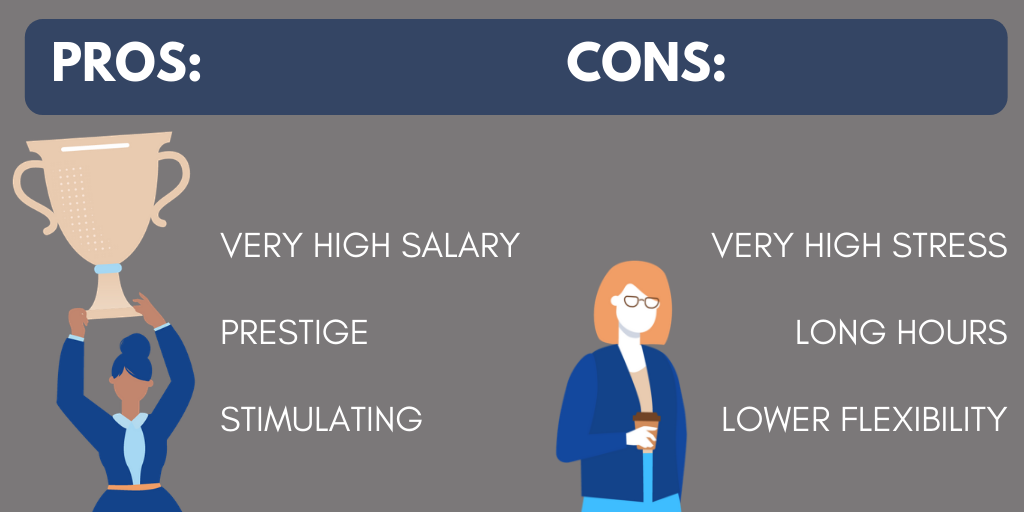![]()
Lawyers- are they the staunch defenders of law and order or ruthless sharks of the corporate world? Do they uphold the law or look for loopholes in it? Popular culture has given us plenty of images and ideas about attorneys, from “To Kill a Mockingbird” to “Legally Blond.” And while the real-life work of lawyers may not be as high-stakes as the average courtroom drama, there’s no denying that lawyers occupy a position of power and influence in society. From painstakingly drafting contracts to dramatically prosecuting crimes, lawyers solve legal problems for individuals, organizations, and society itself.
Society is complex, which is why our code of laws is so very large and complicated. It takes an expert to know and understand all these laws and how they apply to people, groups, and situations. Lawyers challenge laws, uphold laws, and counsel people and organizations about how to comply with the law. They work in law firms, corporate offices, courts, and international venues. Lawyers are essential for society, and are highly-paid and respected because of it. In fact, lawyer is ranked #1 in Best Social Services Jobs by U.S. News.

But because lawyers are so important, the path to becoming one is long and steep. After all, no one wants any less than a true expert to navigate the legal system on their behalf, whether that means overseeing a merger or drafting a will. Beyond straight-up intelligence, it takes a great deal of time, effort, investment, and commitment, to become a lawyer. If you’re considering a degree in law, you’ll want to understand topics such as what degree you need to become a lawyer, the difference between a juris doctor of law (JDL) and other law degrees, and what you can expect from a law career.
Jump To:
- What is a Law Degree?
- How is Law Different from Legal Studies?
- What Bachelor’s do I Need to Become a Lawyer?
- What is the LSAT (Law School Admission Test)?
- What Can I do with a JDL (Juris Doctor of Law)?
- What is the Bar Exam?
- What Can I do with an LL.M? (Master of Laws)?
- Can I Earn a Law Degree Online?
- Where Can I Work with a Degree in Law?
- How Much Can I Earn with a Law Degree?
- What are the Pros and Cons of a Degree in Law?
What Is a Law Degree?
The phrase “law degree” can be applied to various undergraduate degrees or even certificates in law, but usually refers to a Juris Doctor of Law (also called a JD or JDL). A JD is the terminal degree that qualifies a professional to practice as a lawyer. The path to earning a JD and becoming a lawyer is a bit complicated, and involves a few steps.

In most fields, you’ll earn a bachelor’s degree, followed by a master’s, followed by a doctorate. In the field of law, you’ll need to earn a bachelor’s degree, then a doctorate (JDL), then an optional master’s degree (LLM). As if that weren’t confusing enough, you’ll also need to plan to take two important qualifying exams: the LSAT and the Bar Exam. After completing your BA or BS, you’ll take the LSAT, which is an entrance requirement for almost all law schools. After completing your JDL in law school, you’ll take the Bar Exam, which will allow you to officially practice as a lawyer. A masters degree in law (LLM) is optional, and only some lawyers choose to earn one. With an LLM, you’ll be qualified to practice as a specialist in a field like contract law, copyright law, or family law.
How Is Law Different from Legal Studies?
The similarity of the terms degree in law and degree in legal studies is the source of quite a bit of confusion. The difference boils down to degree level: a “law degree” usually means a graduate degree in law, a “legal studies” degree means an undergraduate degree. In other words, degrees in law offered at the associate’s and bachelor’s level are usually titled legal studies majors.

Most people with an associate’s degree in legal studies go on to work as paralegals, while the majority of people who earn a bachelor’s in legal studies go on to earn a full degree in law (JD) and find work as lawyers. But a bachelor of science (BS) or bachelor of arts (BA) in law can stand on its own as well, and lead to other positions in the legal profession. According to The Balance, some of the best roles for people with a BS in Legal Studies or Pre-Law include:
- paralegal/legal assistant
- legislative assistant
- compliance officer
- government relations officer
- law librarian
What Bachelor’s Degree Do I Need to Become a Lawyer?
If you want to become a lawyer, you won’t be restricted in your choice of major. Any undergraduate degree that develops critical thinking and communication skills is a good match for a graduate degree in law. Many lawyers hold undergraduate degrees in liberal arts disciplines. According to the BLS, undergraduate classes that are useful to take for a future in law include political science, history, economics, and English.

Of course, a degree in legal studies is a great choice if you’re certain that you want to eventually practice law. This undergraduate degree will give you a foundation in law that will make your graduate coursework for a JD easier. If you decide not to go on to become a lawyer, a bachelor’s degree in legal studies will allow you to work as a paralegal.
Learn more about what degree you need to be a paralegal.
If you’re interested in a particular area of law, such as environmental law, international law, or corporate law, you may wish to earn a bachelor’s degree in a relevant field, such as environmental studies, international studies, or business.
What Is the LSAT (Law School Admission Test)?
Every accredited law school requires prospective students to pass the Law School Admission Test (LSAT), administered by the Law School Admission Council. The LSAT is notoriously tough, with high standards designed to weed out those who don’t have the rigor to succeed in law school or the law profession. This tough test takes 3 hours and 30 minutes to complete, and is divided into separate sections, covering:
- Logical reasoning (worth 50% of total score)
- Reading Comprehension (worth 27% of total score)
- Logic Games (worth 23% of total score)
- LSAT Writing Section (not scored, but submitted to law schools as a candidacy factor)
The Law School Admission Council recommends that students prepare for the LSAT by reviewing official practice tests, called PrepTests. Most students also choose to take an in-person or online study course to give them a formal structure for preparing. An LSAT score of 120-180 is considered a passing score. Many prospective law students don’t pass the LSAT on their first attempt, and re-tests are allowed. As of September 2019, the Law School Admission Council has set a limit of no more than 3 attempts year, no more than 5 attempts every 5 years, no more than 7 attempts total in a lifetime.
What Can I Do with a JDL (Juris Doctor of Law)?
The JDL Juris Doctor of Law (JD or JDL) is the graduate-level degree which will allow you to practice as a lawyer. Though it’s technically a doctorate, you’ll be eligible to enter a JDL program with just a bachelor’s under your belt- no master’s required.
It typically takes three years to complete a Juris Doctor program, though a few schools offer a shorter 2-year program. Your first year will usually be spent completing requirements such as Contracts, Torts, and Criminal Law. Your second year will include the opportunity to select classes based on your professional goals and the areas of law you’ll need to understand in order to pass the bar exam. You can expect to complete several major writing projects and a large research paper, in addition to your usual classes. Most law school courses culminate in a single large exam which will determine your grade for the course.
An internship will also be an important part of your JDL experience, allowing you to observe and take part in real-world legal practice and proceedings. Many second-year law school interns receive job offers from their internship site upon graduation.
Law schools also offer JDL students the opportunity to participate in programs like moot court (a mock trial based on real-world cases) and law review (a student-edited and published journal with articles by judges, lawyers, and law professors). Participating in such programs is one way law students can distinguish themselves and boost their chances of landing a desirable job.
As part of a JDL, or as an additional graduate-level certificate, most law schools also offer specializations, such as:
- Maritime Law
- Civil Law
- Environmental Law
- Entertainment Law
- European Legal Studies
- International Law
- Sports Law
However you choose to structure your curriculum, you’ll need to attend a law school that’s accredited by the American Bar Association (ABA) in order to be admitted to your state’s bar. The ABA is the national professional association for lawyers, which oversees educational and ethical standards for the profession.
What Is the Bar Exam?
The bar exam is a standardized exam for prospective lawyers. Most states use the Uniform Bar Examination (UBE), created by the National Conference of Bar Examiners (NCBE), while others have their own unique test. Every state sets its own standards as to what constitutes a passing score on the bar exam, and a few also require additional education components or exams.

In most states, it takes two separate 6-hour testing days to complete the exam. The bar exam is offered twice per year, and consists of the following sections:
- Multistate Bar Examination (MBE) (worth 50% of total score)
- Multistate Essay Examination (MEE) (worth 30% of total score)
- Multistate Performance Test (MPT) (worth 20% of total score)
Most prospective lawyers sit for the bar exam after graduating with their JD and taking a formal bar review course. The first-attempt bar exam passing rate is about 88%.
After passing the bar exam in a given state, you’ll need to then apply for admittance to that state’s bar organization before being allowed to practice law. If you plan to practice in more than one state, you’ll need to apply separately to the bar for each state.
What Can I Do with a Master of Laws (LLM)?
The term Master of Laws (ML or LLM) comes the Latin “Magister Legum”, and is used to describe a postsecondary degree in law. An LLM is not required to practice law, but is one way lawyers can opt to further their qualifications and advance their careers.
The Law School Admission Council explains that an LLM can be a general law degree, covering a broad range of advanced topics in law. But more often, according to US News, lawyers earn an LLM so that they can specialize in one area of law, such as:
- tax law
- business law
- international law
- health law
- trial advocacy
- environmental law
- intellectual property
- trusts and estates
Among these specializations, tax law is the most popular LLM, and is sometimes called an MLT (Master of Laws in Taxation).
Can I Earn a Degree in Law Online?
While online degrees in most fields are well-established, the American Bar Association (ABA) has been slow to adapt its standards regarding distance education. Although there are some schools offering 100% online law degrees, none are approved by the ABA. The ABA does, however, allow students to take up to 30 credit hours (about one-third of those required for a JD) online. That means students looking for flexible options will need to look for an ABA-accredited hybrid law degree program, one which blends on-campus and online law classes.
Like a degree in dentistry or pharmacology, a law degree is a professional degree- it provides training specific to a particular career. But unlike many professional programs, hands-on practice does not make up a significant part of legal training. That means that the experience of taking an online law class is not vastly different from taking a law class in a traditional classroom.
Online programs typically take four years to complete, rather than three, since online students tend to opt for part-time programs. Online law degree programs blend recorded lectures, video chats, message boards, group assignments, and presentations, to provide both individual and interactive learning.
Where Can I Work with a Degree in Law?
As we’ve already observed, lawyers work in a number of different industries and fields, from immigration law, to copyrights, to corporate law, as well as serving as legal counsel in every industry. Lawyers also work in different jobs settings, but the large majority work for law firms.

The BLS projects that the demand for lawyers will grow 8% between 2016 and 2026, rising to ta total of 857,500 jobs for lawyers. That’s a healthy rate of job growth, slightly ahead of the average for all occupations, which is 7%.
But the BLS goes on to state that the number of graduating lawyers is expected to exceed available positions. This comes as a result of a rising number of students pursuing law careers and efforts by firms to cut legal costs. Many companies are shifting tasks like legal document review onto paralegals, for instance, or outsourcing some work to cheaper overseas firms. This means that competition for jobs as a lawyer will be stiff, and a willingness to relocate or legal specialization can be very helpful in finding a job as a lawyer.
Check out the top 20 non-law firm jobs with a law degree.
How Much Can I Earn with a Law Degree?
Everyone knows that lawyers are among the very highest-paid professions. But what’s the actual salary you can expect to earn as a lawyer? The BLS reports that the average lawyer earned $120,910 in 2018, while the top 10% of lawyers earned more than $208,000, on average. According to The Balance, the highest-paying areas of law are copyright law, corporate law, criminal defense, tax law, and real estate law.

Every town, no matter how small, needs lawyers, whether to probate wills, settle divorces, or prosecute crimes. Law firms are also located in cities throughout the US. But in general, large law firms pay the highest salaries, and the firms that handle the biggest cases are located in larger cities. The three highest-paying cities in which to practice law are mostly located in California: San Jose ($198,100), San Francisco ($189,660), and Anaheim ($189,150), though cities in Connecticut and New York are also quite high. Needless to say, though, the cost of living is also much higher in these metropolitan areas.
Lawyers don’t get paid for nothing- they tend to work hard and long to earn these high salaries. Workweeks of 50-60 hours are quite common in the field of law. Lawyers in private practice, on the other hand, usually have lower salaries, but work fewer hours. That makes a solo private practice a good option for those who prioritize work-life balance and autonomy.
What are the Pros and Cons of a Degree in Law?

There are a lot of good reasons to be a lawyer, from prestige to power to pay. Not only is the job of lawyer ranked #1 in Best Social Services Jobs by U.S. News., it’s also ranked #17 in Best-Paying Jobs and #42 in Best Jobs. Lawyers are respected and occupy a position of prestige in society. They are able to make important changes in people’s lives, whether that means getting a settlement for a wrongful death or drafting a living will that reflects a person’s wishes. They can also make changes in society by participating in large-scale cases like antitrust suits and class-action lawsuits.
But there are plenty of drawbacks to practicing as a lawyer, mainly stress and long hours. U.S. News gave the job of lawyer a low score of 4 out of 10 for “work/life balance,” and an even lower score of 2 for healthy levels of job stress. As an analysis by Yale Law School finds, you’ll typically need to work more than 10 hours per day to meet a private law firm’s required billable hours. Of course, lawyers working in other settings, such as courts, advocacy, and private practice, won’t be expected to put in these long hours. But these positions still tend to be stressful. Whether you’re doing legal work to prevent an oil pipeline from passing through a Reservation, settle a contentious custody dispute, or prosecute an accused embezzler, the stakes are high in these non-law-firm positions, and that high pressure can take its toll.
Further Reading:
- Top 25 Law Schools
- Which Degree Do You Need To Become A Lawyer?
- 20 Non-Law Firm Jobs with a Law Degree
- What is the Difference in Legal Studies and a Law Degree?
- What is the Benefit of a Degree in Paralegal Studies vs. Legal Studies?
- What is the Difference in a Degree in Legal Studies and a Degree in Criminal Justice?
- What Classes Will I Take in a Criminal Justice Degree?
- Top 25 Online Master’s Degree Programs in Criminal Justice
- Top 10 Graduate Degree Programs in Criminal Justice
- What Can I Do With a Cyber Security Degree?
- What Can I Do With an English Degree?
- What are the Benefits of a Graduate Certificate in Legal Studies?
- What Degree do I Need to Work in Cyber Security Law?
- Top 15 Jobs for Adrenaline Seekers
- What Are the Highest Paying Jobs with a Degree in Mining and Geological Engineering?
- What is the Difference Between a Master of Studies in Law and a Master of Laws?
- 30 Great Outdoor Jobs Requiring a College Degree
- What Classes Will I Have to Take for a Degree in Petroleum Engineering?
- Top 10 Online Bachelor’s Degree Programs in Environmental Science
- What Can I do with a Liberal Arts Degree?
- Top 15 Liberal Arts Schools in America
- Top 10 Highest Paying Social Science Careers
- 50 Best Online Degrees for 2019
- 23 Fastest Online Bachelor’s Degree Programs
- 20 Best Degree Programs for Undergraduates
- Top 25 Fastest Online Doctorate Degrees
- What Degree Do I Need to Be a Tax Accountant?
